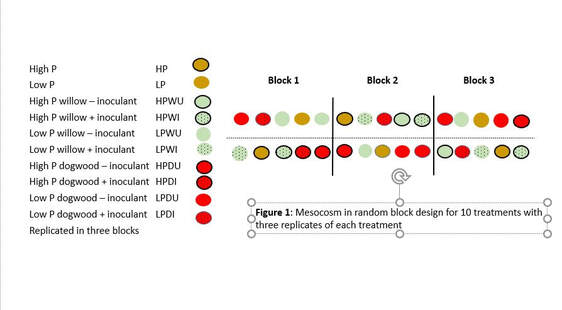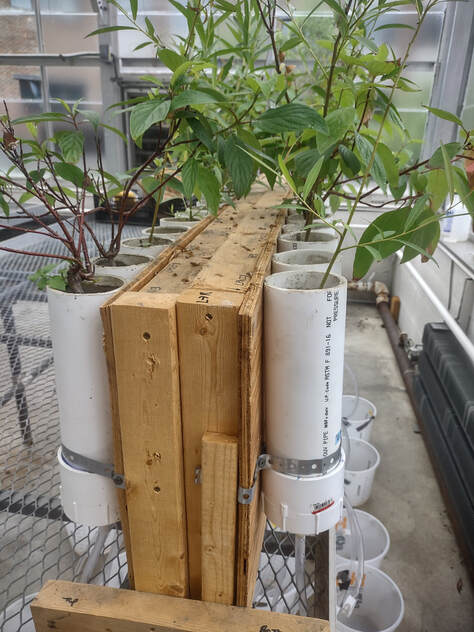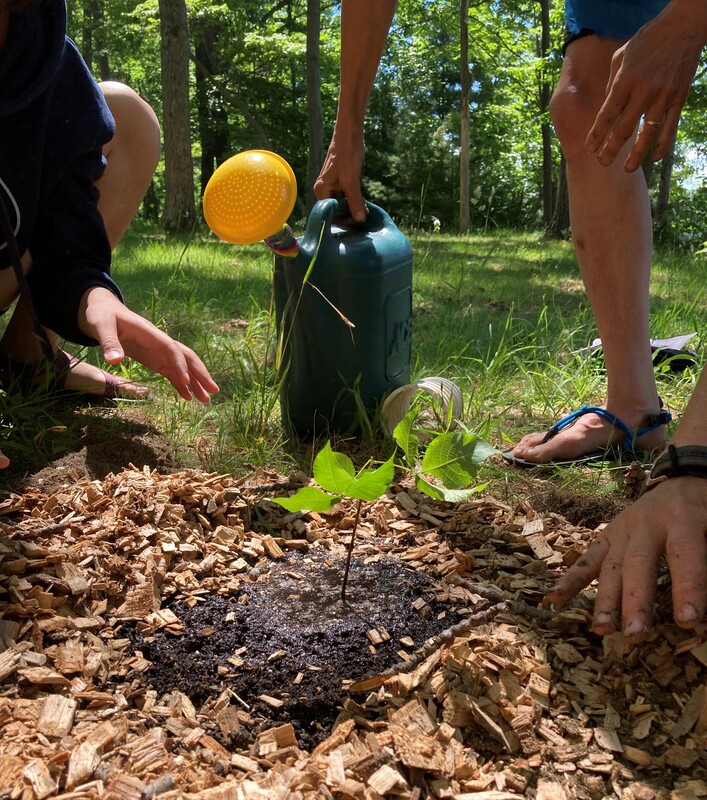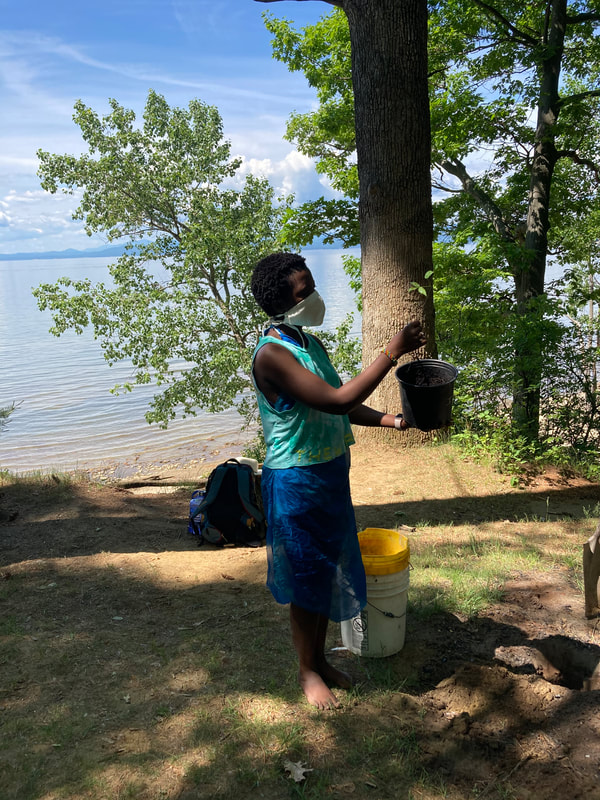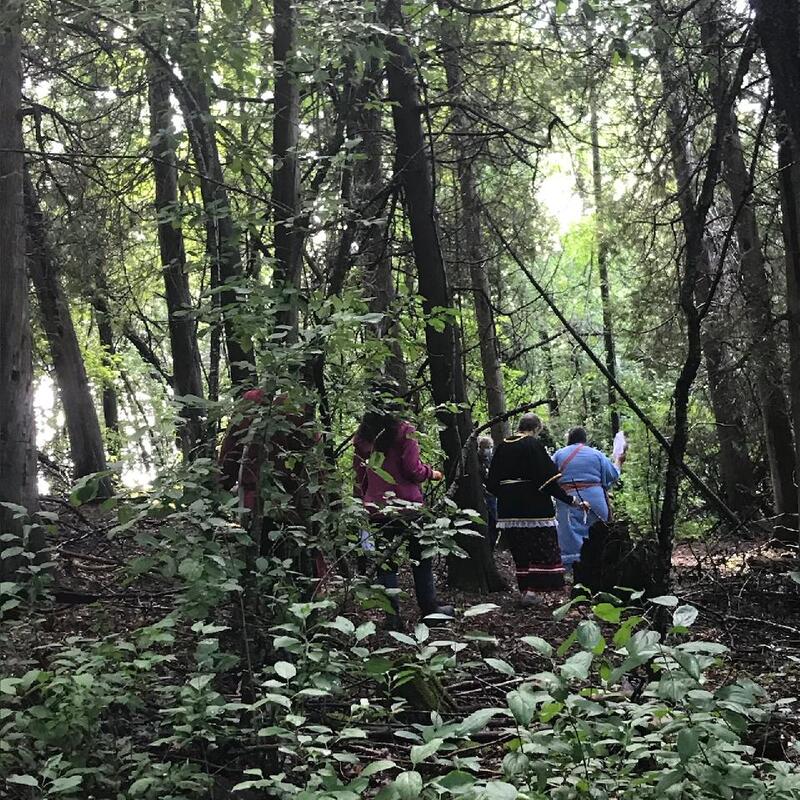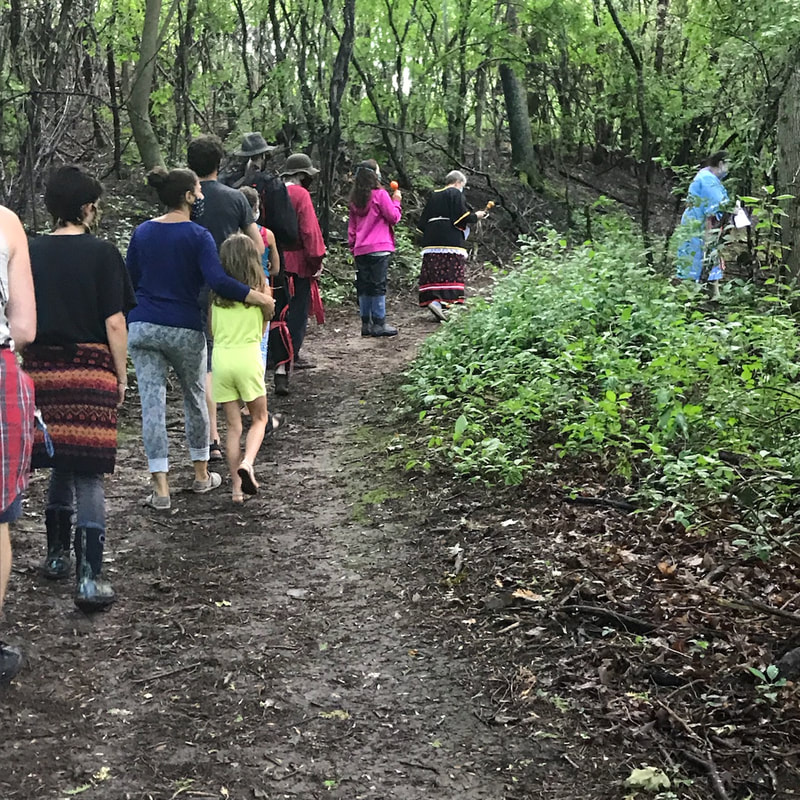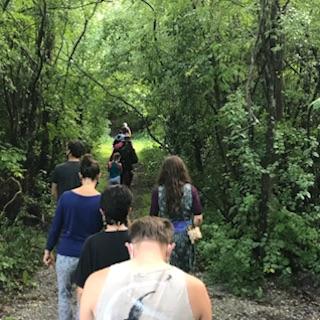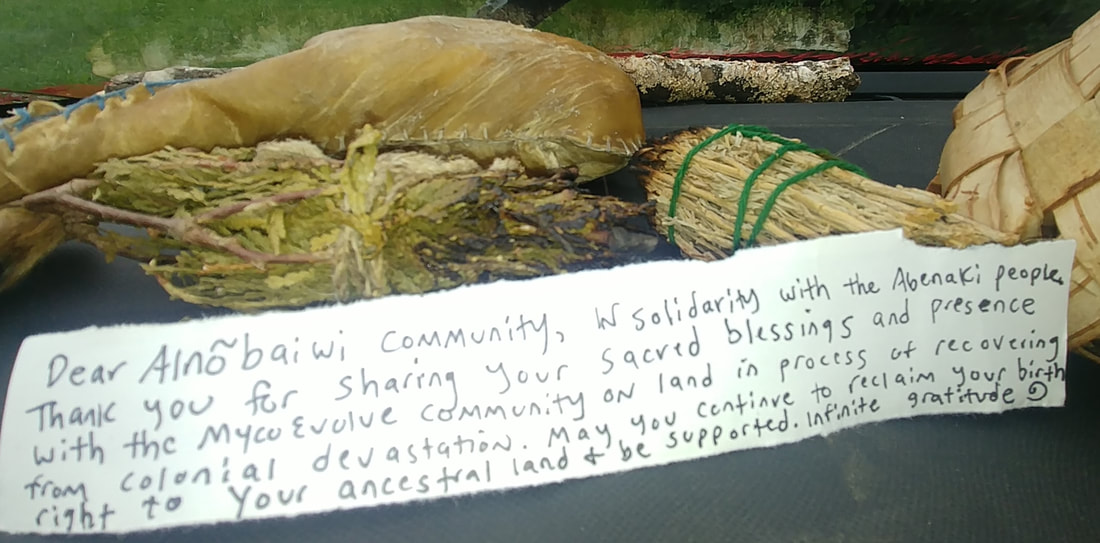- Increase ecological literacy in our community through inquiry-based, student-centered education
- Grow ecological restoration/reconciliation jobs, skills, workforce, community, village
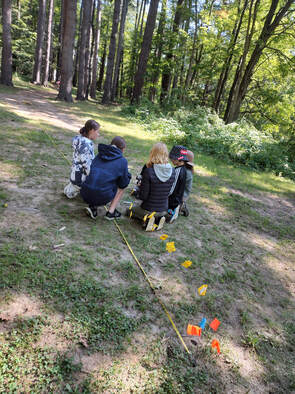
Earth Repair Homeschool (for middle and high school).
Most falls, winters, and springs, programs are offered. Email us if interested for our next session in fall 2024! Registration closes mid August 2024.
Curriculum incorporates nature awareness, earth science, biology, botany, chemistry, natural history, mycology, art, writing, math, and sociology, with orientation towards justice & equity. Each class involves gratitude circle, nature awareness games & core routines, student-centered learning activities offering entry ways for students to grapple with and incorporate foundational concepts into their inherent knowing, and reflective debriefs. Homework to practice, expand upon and deepen content integration is offered each class and reviewed the following class. The aim is to provide robust yet accessible science education to nurture earth repair understanding, ecological restoration lens honing, and practical skill development.
" Jess show her care for students daily. She listens and show compassion, goes out of her way to help those who come to her, and models restorative communication. Jess has a passion for environmental stewardship and advocates for it both from a teaching & community perspective."
- Burlington Kids Core Staff Evaluation Form (February 2019)
Image above: middle school homeschool students figuring out geologic time trajectory of life on earth (according to Western science) with a few clues given.
Most falls, winters, and springs, programs are offered. Email us if interested for our next session in fall 2024! Registration closes mid August 2024.
Curriculum incorporates nature awareness, earth science, biology, botany, chemistry, natural history, mycology, art, writing, math, and sociology, with orientation towards justice & equity. Each class involves gratitude circle, nature awareness games & core routines, student-centered learning activities offering entry ways for students to grapple with and incorporate foundational concepts into their inherent knowing, and reflective debriefs. Homework to practice, expand upon and deepen content integration is offered each class and reviewed the following class. The aim is to provide robust yet accessible science education to nurture earth repair understanding, ecological restoration lens honing, and practical skill development.
" Jess show her care for students daily. She listens and show compassion, goes out of her way to help those who come to her, and models restorative communication. Jess has a passion for environmental stewardship and advocates for it both from a teaching & community perspective."
- Burlington Kids Core Staff Evaluation Form (February 2019)
Image above: middle school homeschool students figuring out geologic time trajectory of life on earth (according to Western science) with a few clues given.
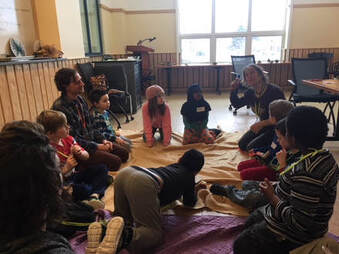
Workshops, classes, programs for Elementary School Aged Children
In topics ranging from gardening, mycology, botany, nature awareness, orienteering, herbal medicine, earthcrafts, wilderness skills. Reach out here. This can be in schools, camps, day cares, educational centers, on field trips, at conferences...
"You really connected with some of the more vulnerable students and they will remember all the care and commitment you showed them. your vast knowledge & dedication for the environment and the many layers involved in the earth's systems is impressive and made a big impact for the children."
-Rose Wall, Site Director of CP Smith After School Program (June 2019)
Image above: Jess and Elliot Cluba co-facilitating a Fun with Fungi class at the VT Winter NOFA Class in 2019.
In topics ranging from gardening, mycology, botany, nature awareness, orienteering, herbal medicine, earthcrafts, wilderness skills. Reach out here. This can be in schools, camps, day cares, educational centers, on field trips, at conferences...
"You really connected with some of the more vulnerable students and they will remember all the care and commitment you showed them. your vast knowledge & dedication for the environment and the many layers involved in the earth's systems is impressive and made a big impact for the children."
-Rose Wall, Site Director of CP Smith After School Program (June 2019)
Image above: Jess and Elliot Cluba co-facilitating a Fun with Fungi class at the VT Winter NOFA Class in 2019.
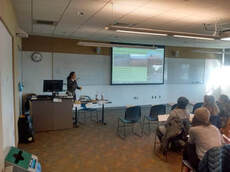
eUniversity, College Guest Lecturer, Project Designer, Course Consultant, Curriculum Creator
Offering curriculum, projects with ongoing support, or a one time lecture on local earth repair projects, service learning opportunities, or endeavors that bring curriculum to service in the community. Topics can include: ecological restoration, role of fungi in earth repair, mycorrhizal fungi, scientific research, permaculture,...
Reach out if intersted!
Offering curriculum, projects with ongoing support, or a one time lecture on local earth repair projects, service learning opportunities, or endeavors that bring curriculum to service in the community. Topics can include: ecological restoration, role of fungi in earth repair, mycorrhizal fungi, scientific research, permaculture,...
Reach out if intersted!
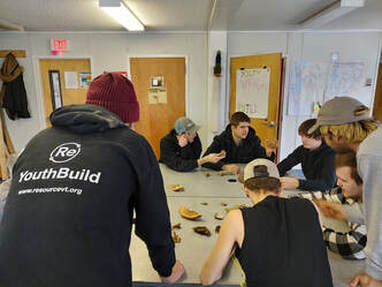
Teaching Science, Offering Training in Restoration to Young Adults in the Work Force
Student-centered, inqiry based curriculum can be designed, and classes offered based on objectives, student population, location, and timing. Reach out if you would like us to come offer classes, a workshop, or a program!
"Jessica Rubin is an inspired educator and conservationist and I cannot speak highly enough of the projects she manages and the thoroughness and energy she brings to each collaboration. Our students have left each project with significant growth in their understanding of ecosystem restoration, identifying native and invasive species, and best practices in the science of restoration."
- Noah Kass, VT Youth Build Program Manager (November, 2022)
Images above: VT Youth Build checking out the morphology of polypores found in nearby forests. This led into a class on the lifecycle of fungi, inoculating logs with shitake, learning about kombucha and how our microbiome, and investigating the role of fungi and microbes in human and ecosystemic health.
Student-centered, inqiry based curriculum can be designed, and classes offered based on objectives, student population, location, and timing. Reach out if you would like us to come offer classes, a workshop, or a program!
"Jessica Rubin is an inspired educator and conservationist and I cannot speak highly enough of the projects she manages and the thoroughness and energy she brings to each collaboration. Our students have left each project with significant growth in their understanding of ecosystem restoration, identifying native and invasive species, and best practices in the science of restoration."
- Noah Kass, VT Youth Build Program Manager (November, 2022)
Images above: VT Youth Build checking out the morphology of polypores found in nearby forests. This led into a class on the lifecycle of fungi, inoculating logs with shitake, learning about kombucha and how our microbiome, and investigating the role of fungi and microbes in human and ecosystemic health.
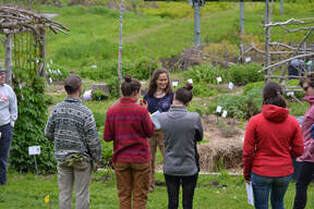
Talks, Lectures, Workshops on Mycology, Ecological Restoration, Research, and Earth Repair.
Tailored to the audience, content, location, and time we can offer a variety of educational offerings to your students, department, organization, or business. Reach out if interested!
The content and delivery of your talk with our apprentices was excellent. You are clearly an expert in this field and are skilled at conveying your knowledge to beginners in interactive and inspiring ways.
- Katherine Elmer, UVM Adjunct in Holistic Health, Environmental and Health Sciences, UVM Health & Wellness Coach, Co-Founder of Spoonful Herbals and Railyard Apothecary
Tailored to the audience, content, location, and time we can offer a variety of educational offerings to your students, department, organization, or business. Reach out if interested!
The content and delivery of your talk with our apprentices was excellent. You are clearly an expert in this field and are skilled at conveying your knowledge to beginners in interactive and inspiring ways.
- Katherine Elmer, UVM Adjunct in Holistic Health, Environmental and Health Sciences, UVM Health & Wellness Coach, Co-Founder of Spoonful Herbals and Railyard Apothecary
|
Research Design or Consultation
We can offer support to creating research questions, objectives, hypotheses, designing the experiment, guides for analysis and reporting. Reach out if you have a project in mind! Image to the right: a random block mesocosm experimental design on paper and in the greenhouse. |
|
Commmunity or Group Plantings and/or Rewilding of Community or Private Areas
Have a group, neighborhood, or family project that you would like guided into a fun, meaningful program with song, dance, poetry, art or other creative mediums? Reach out! Images to the left: dancers as part of a VT Dance Alliance planted Shagbark Hickory trees in a degraded park area in ceremony to ground a water performance they offered at the edge of the lake. |
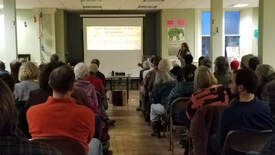
Community Stewardship Educational Offerings
Would your neighborhood, library, Transition Town, or Conservation Comission like to learn about local ecological restoration initiatives, community science ecological inventories for conservation, or other rewilding projects? Reach out!
Would your neighborhood, library, Transition Town, or Conservation Comission like to learn about local ecological restoration initiatives, community science ecological inventories for conservation, or other rewilding projects? Reach out!
A few educational videos
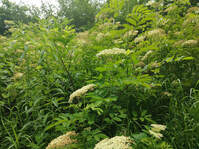
This podcast is about ecological restoration, soil science, riparian buffers, remediation, water quality, pollinator habitat, rematriation, and regenerative agriculture as it relates to our work in early 2023. Mycorrhizae Matters: Ongoing Research around Improving Phosphorous Uptake in Buffers with Guest Jess Rubin
https://www.uvm.edu/seagrant/watershed-forestry-partnership/restoration-roundup-podcast/mycorrhizae-matters-ongoing-research
https://www.uvm.edu/seagrant/watershed-forestry-partnership/restoration-roundup-podcast/mycorrhizae-matters-ongoing-research
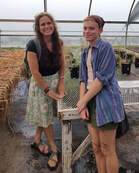
A recording of a talk on Growing Endemic Mycorrhizal Fungi with Regenerative Farms by Luca Kolba and Jess Rubin of MycoEvolve & UVM Plant Soil Science Department similar to what we shared at the Winter VT NOFA conference 2023.
Accessible, economically viable, and low-maintenance process of gathering and growing local, native mycorrhizae fungi for farms interested in incorporating these symbiotic collaborators into regenerative farming systems. Practical information to easily implement at home. The process and application is relevant to a wide audience, like farmers, gardeners, and earth tenders who work with perennial systems, buffers, or border sanctuaries that avoid tilling, additional chemical input, and minimal soil disturbance. Here is a link to the guide.
Accessible, economically viable, and low-maintenance process of gathering and growing local, native mycorrhizae fungi for farms interested in incorporating these symbiotic collaborators into regenerative farming systems. Practical information to easily implement at home. The process and application is relevant to a wide audience, like farmers, gardeners, and earth tenders who work with perennial systems, buffers, or border sanctuaries that avoid tilling, additional chemical input, and minimal soil disturbance. Here is a link to the guide.
Permaculture Course at UVM, Jeffords; 3/21/18 "Invisible Structures" class aka renamed: "Scaffolding". This video is a snippet of the class addressing social structures in society that need to be, can be, and will be reworked to create a more equitable world. The term 'Invisible Structures' according to Dave Jacke is a jargon term that is problematic so I propose shifting the term to "Scaffolding." Students are investigating these concepts through studying the PAN educator's pledge.
Images below: moments from a rematriation ceremony conducted in 2020 by Abenaki Clan Mothers and Elder Megeso of Alnobaiwi at a degraded area at Shelburne Farms that MycoEvolve is restoring and researching the role of mycorrhizae and native plant associations for water quality protection, pollinator habitat, and where Abenaki are beginning to harvest food, medicine and craft supplies.
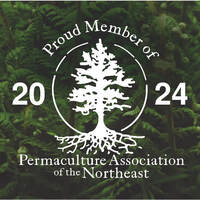
yepeth@gmail.com
MycoEvolve FB
https://www.instagram.com/rootsandtrails_mycoevolve/
©2024 MycoEvolve; DBA of Roots and Trails L3C
